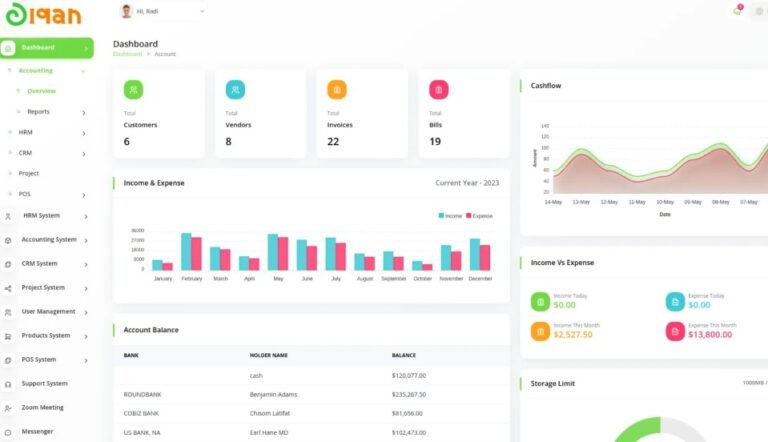Customer Relationship Management (CRM) software serves as an invaluable asset for businesses across the spectrum, enabling them to enhance customer interactions and boost satisfaction levels. Given the plethora of choices in the market, selecting the most suitable CRM solution for your business can indeed be a daunting task.
In this guide, we will compare different CRM software options to help you make an informed decision about which one is best for your business.
Understanding CRM Software
Before we dive into the comparison, let’s first understand what CRM software is and how it can benefit your business.
CRM software is a type of technology that helps businesses manage their interactions with current and potential customers. It allows businesses to store customer data, track sales, and analyze customer behavior to improve marketing strategies. Additionally, it provides a centralized platform for businesses to communicate with their customers through various channels such as email, social media, and phone.
CRM software can benefit your business in multiple ways:
- Improved customer satisfaction: By having access to all customer data in one place, businesses can provide personalized and efficient customer service.
- Increased sales: With better understanding of customer behavior and needs, businesses can tailor their sales strategies and increase conversions.
- Enhanced marketing efforts: CRM software allows businesses to track customer interactions and preferences, which can guide targeted marketing campaigns.
- Better team collaboration: With a centralized platform, teams can easily share information and work together to provide a seamless customer experience.
Types of CRM Software
There are various types of CRM software available in the market, each with its own features and benefits. The main types of CRM software are:
- Contact Management: This type of CRM software focuses on organizing and managing customer contact information in one place.
- Sales Automation: These tools help businesses streamline their sales processes, from lead generation to closing deals.
- Marketing Automation: With these tools, businesses can automate marketing tasks such as email campaigns, social media posts, and customer segmentation.
- Customer Service: This type of CRM software focuses on providing efficient customer support through various channels.
- Analytics: These tools help businesses analyze customer data to make data-driven decisions for improved marketing efforts and sales strategies.
Comparison of Top CRM Software
Now that we have a basic understanding of CRM software and its types, let’s compare some of the top CRM solutions in the market.
Olqan CRM
Olqan CRM stands out as a versatile solution tailored to meet the diverse needs of modern businesses. Designed to cater to small and medium-sized enterprises, it offers a comprehensive suite that includes contact management, sales automation, and customer service features. One of the highlights of Olqan CRM is its user-friendly interface, which simplifies the process of tracking customer interactions and managing sales pipelines. Additionally, its robust analytics tools provide valuable insights into customer behavior, helping businesses to craft more effective marketing strategies. With its flexibility and scalability, Olqan CRM is an excellent choice for businesses looking to enhance their customer relationship management and drive growth.
Salesforce
Salesforce is a popular CRM software with a wide range of capabilities for businesses of all sizes. It offers features such as contact management, lead tracking, sales forecasting, and customer service automation. The platform also integrates with various third-party applications, making it a versatile option for businesses with specific needs. However, the complex interface and steep learning curve may be challenging for some users, especially those with limited technical knowledge.
HubSpot CRM
HubSpot CRM is a free and user-friendly option for small businesses looking to streamline their customer relationship management. It offers features such as contact management, email tracking, and lead scoring. One of the standout features of HubSpot CRM is its integration with the HubSpot marketing and sales software, allowing businesses to have a complete view of their customer interactions. However, the free version has limited features and may not be suitable for larger businesses with more complex needs.
Conclusion
Choosing the right CRM software for your business can make a significant impact on your overall success. Consider your business needs and budget when comparing different options, and don’t hesitate to take advantage of free trials to test out the software before making a decision. With the right CRM solution, you can efficiently manage your customer relationships and drive growth for your business. So, take your time and carefully evaluate all the options to find the best fit for your business. Remember, effective customer relationship management is crucial for long-term success, so investing in reliable CRM software is worth every penny.

